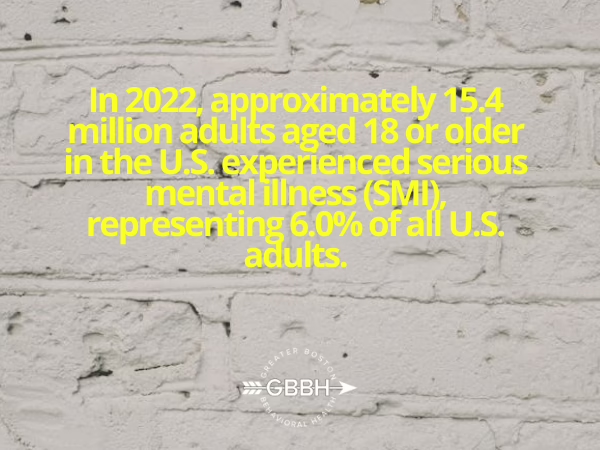Mental health and well-being are essential to living a balanced and fulfilling life. However, when individuals struggle with mental health disorders, emotional distress, or behavioral challenges, professional support becomes necessary. Behavioral health services provide a structured approach to addressing mental health concerns, offering a range of treatment options that cater to individual needs.
Whether you are seeking an Anger Management Program, Mental Health Treatment Programs, or specialized care, Boston has numerous resources to help.
In this guide, we will explore the different types of behavioral health services available in Boston, their benefits, and how they contribute to overall mental well-being.
What is Behavioral Health?
Behavioral health refers to the connection between behavior, mental well-being, and overall health. It encompasses mental health disorders, substance use issues, and emotional well-being. Unlike traditional medical treatment, behavioral health services focus on therapeutic interventions, lifestyle changes, and emotional support to help individuals regain stability and function effectively in their daily lives.
Behavioral health services address a range of conditions, including:
- Anxiety disorders (Generalized Anxiety Disorder, Panic Disorder, Social Anxiety)
- Depression and mood disorders
- Post-Traumatic Stress Disorder (PTSD)
- Obsessive-Compulsive Disorder (OCD)
- Bipolar disorder
- Borderline Personality Disorder (BPD)
- Anger management issues
- Substance use disorders
Evidence-Based Therapy Options: DBT and CBT Therapy
Two of the most effective and widely recognized therapy modalities available in Boston’s behavioral health services are Dialectical Behavior Therapy (DBT) and Cognitive Behavioral Therapy (CBT).
- DBT Therapy: Originally developed for individuals with borderline personality disorder, DBT therapy has been proven effective in treating a range of mental health conditions, including self-harm tendencies, suicidal ideation, and emotional dysregulation.
DBT highlights four key areas: meditation, accepting distress, controlling feelings, or connecting with others. It is particularly beneficial for individuals who struggle with impulsive behaviors and extreme mood swings.
- CBT Therapy: CBT therapy is a structured, goal-oriented treatment approach that helps individuals identify and challenge negative thought patterns. It is widely used for treating anxiety, depression, PTSD, and other mental health disorders.
By recognizing harmful cognitive distortions and replacing them with healthier perspectives, individuals undergoing CBT therapy can develop improved coping mechanisms and enhance their overall well-being.
Choosing the Right Mental Health Treatment Center in Boston
When seeking behavioral health services, consider the following factors:
- Accreditation and Licensing – Ensure the facility is accredited and staffed with licensed professionals.
- Range of Services – Look for programs that offer a combination of therapy, medical care, and holistic treatments.
- Personalized Care – A good treatment center provides customized care plans based on individual needs.
- Aftercare Support – Recovery doesn’t end with treatment; on-going support is crucial for long-term success.
Types of Mental Health Treatment Programs in Boston
- Outpatient Therapy: Offers flexibility for those who can manage their daily responsibilities while receiving treatment.
- Intensive Outpatient Programs (IOPs): Provide structured support without requiring inpatient care.
- Partial Hospitalization Programs (PHPs): Offer comprehensive care for individuals needing intensive therapy but not 24/7 supervision.
- Residential Treatment: Provides round-the-clock support in a controlled environment for those with severe mental health challenges.
Types of Therapy in Behavioral Health Treatment
Therapy is at the core of Boston behavioral health services. Different therapeutic modalities are used depending on an individual’s mental health needs and treatment goals.
1. Cognitive Behavioral Therapy (CBT Therapy)
CBT Therapy is one of the most widely used approaches for treating:
- Anxiety disorders
- Depression
- PTSD
- OCD
CBT focuses on identifying and changing negative thought patterns that contribute to distressing emotions and behaviors.
2. Dialectical Behavior Therapy (DBT Therapy)
DBT Therapy is a structured therapy designed to help individuals regulate emotions, manage distress, and improve relationships. It is especially effective for:
- Borderline Personality Disorder (BPD)
- Bipolar disorder
- Anger management issues
- Addiction recovery
Key components of DBT Therapy include:
- Mindfulness training
- Emotional regulation techniques
- Distress tolerance skills
- Interpersonal effectiveness
3. Group Therapy Programs
Group therapy provides individuals with a supportive community where they can share experiences, gain insights, and learn from others who face similar challenges.
Types of Group Therapy:
- Anger management programs
- Trauma recovery groups
- Addiction recovery groups
- Mindfulness-based groups
The Benefits of Behavioral Health Services
Seeking professional behavioral health services provides individuals with essential tools for long-term mental well-being.
1. Improves Emotional Regulation
By engaging in therapy and structured programs, individuals learn how to identify, process, and regulate emotions effectively.
2. Reduces the Risk of Crisis Situations
Early intervention through therapy programs can prevent severe mental health episodes, reducing the need for hospitalization.
3. Strengthens Relationships
By working on communication skills, conflict resolution, and self-awareness, individuals improve their relationships with family, friends, and colleagues.
4. Supports Long-Term Recovery
For individuals recovering from addiction, trauma, or emotional disorders, behavioral health services provide structured support for relapse prevention and emotional stability.
The Role of Community Support in Behavioral Health
Boston has a solid system of local services that give regular support to people struggling with mental health issues. Assistance clubs, crisis phone lines, and peer mentorship events help people stay connected and get support while they work through their healing process.
Associations like the National Alliance on Mental Health in Massachusetts and local hospitals promote mental health awareness.
Seeking Help from Greater Boston Behavioral Health
Greater Boston Behavioral Health offers a range of services to support your needs. From evidence-based therapy and anger management programs to dual diagnosis treatment, our dedicated professionals are here to help you achieve emotional stability and well-being. Contact us today to learn more about our programs and take the first step toward a healthier future.
At Greater Boston Behavioral Health, we are committed to providing comprehensive and individualized mental health treatment programs. Our Mental Health Treatment Center in Boston offers a variety of evidence-based therapies to support individuals at every stage of their recovery journey.
Why Choose Us?
✔ Experienced clinicians specializing in CBT Therapy, DBT Therapy, and group therapy.
✔ Personalized treatment plans tailored to individual needs.
✔ Flexible outpatient and intensive programs for different levels of care.
✔ Safe and compassionate environment for healing and growth.
Conclusion
Taking care of your behavioral health is as important as taking care of your physical health. With the wide range of services available in Boston, individuals can find the support they need to overcome mental health challenges and lead fulfilling lives. Call us today at (888)278-0716 to learn more about our mental health therapy programs and begin your journey toward well-being.
FAQ on Behavioral Health Service
What is behavioral health, and how is it different from mental health?
Behavioral health encompasses mental health, emotional well-being, and behaviors that impact overall health. While mental health focuses on conditions like anxiety and depression, behavioral health also includes substance use disorders, emotional regulation, and stress management.
What types of behavioral health services are available in Boston?
Boston offers a range of behavioral health services, including:
- Inpatient Treatment Programs for individuals needing 24/7 supervision
- Residential Treatment Programs for structured, long-term care
- Intensive Outpatient Programs (IOP) for flexible treatment while maintaining daily responsibilities
- Outpatient Therapy Programs, including CBT Therapy, DBT Therapy, and Group Therapy
Who can benefit from behavioral health services?
Behavioral health programs are beneficial for individuals struggling with:
- Anxiety, depression, PTSD, and mood disorders
- Substance use disorders and addiction recovery
- Anger management and emotional regulation issues
- Stress-related conditions affecting work, family, or relationships
How does therapy help with behavioral health issues?
Therapies like Cognitive Behavioral Therapy (CBT) and Dialectical Behavior Therapy (DBT) help individuals:
- Recognize and change negative thought patterns
- Develop healthier emotional regulation skills
- Improve relationships and communication
- Build coping mechanisms for stress and anxiety
How do I choose the right behavioral health program?
Choosing the right program depends on symptom severity, lifestyle needs, and personal goals. Our team at Greater Boston Behavioral Health provides personalized treatment plans to determine the best approach for each individual.
Does Greater Boston Behavioral Health offer personalized care?
Yes! We provide tailored treatment programs that include individual therapy, group therapy, and holistic approaches to ensure long-term mental and emotional wellness.


